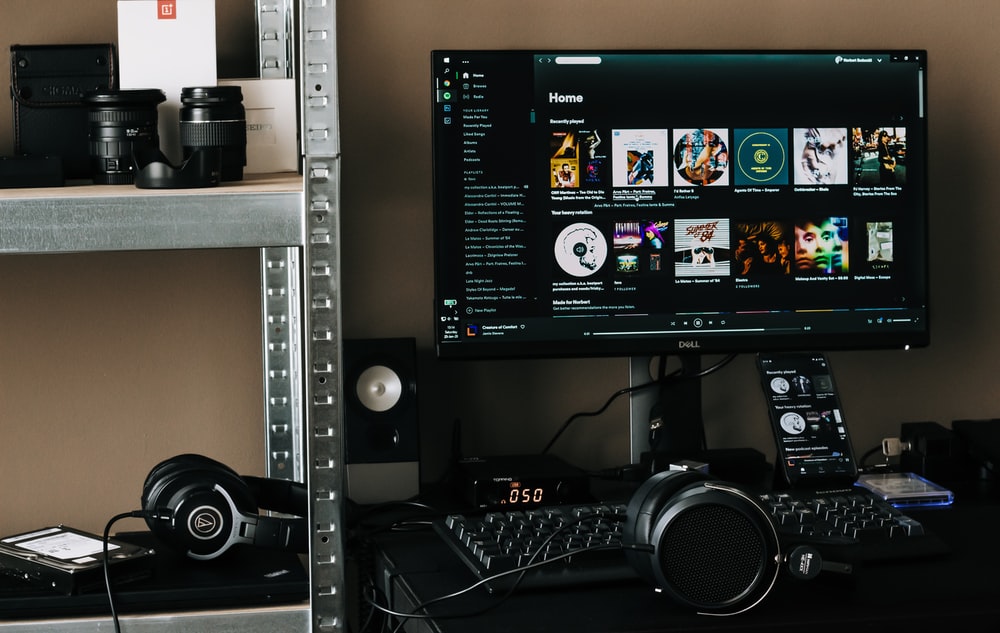5G
Is Our Constant Using of Digital Technologies Affecting Our Brain Health?
Constant Using of Digital Technologies Affecting Our Brain Health? Technology has made life more comfortable and much more convenient.

Technology has made life more comfortable and convenient. We get services that would have taken a long time, like a physical visit a couple of years ago, at the press of a button. Work, home life, and entertainment have gone through a radical revolution.
Offices can be run from home, products can be ordered online and delivered right to the doorstep, family and friends on the other side of the world can be reached instantly, and even love can be found virtually!
The way our brains process information has inevitably changed because of the flood of information that can be accessed instantly. Our brains work on how we interact with the environment and the experiences we get from it.
We have become inseparable from our electronic gadgets. They stay with us every minute of every day, and even when we go to sleep, they are right beside us. A study by com shows people in the U.K. check their mobile phones every 12 minutes a day. 40%–66% of adults check their phones within the first 5 minutes of waking up.
Another 37%–60% check their smartphones 5 minutes before they go to sleep. Very few of them ever think about how this constant digital bombardment affects our behavior, relationships, and even brains.
Table of Contents
A. How Are Our Brains Affected?
1. Goldfish’s Attention Span
The average natural attention span of an adult is about 12 seconds. Smartphones and other digital devices have reduced that attention span to about 88 seconds, which is even less than a goldfish’s!
New and more exciting information is always coming at us, so we quickly lose interest in one thing and move on to the next. Even focusing on tasks becomes difficult when phones keep beeping to alert us of what is happening.
Our relationships are also not spared since our focus entirely on our devices is on the person’s expense sitting next to us. This also hinders learning because concentration is required to listen and retain information.
Reading books becomes even more difficult because we skim through tonnes of data on the internet without reading every word. Students are, therefore, having a hard time concentrating in school and learning.

2. Short Memories
Gone are the days when people would memorize facts like all the capital cities in the world. Information is also so readily available that people don’t bother to retain in their memories anymore. Our devices have calendars that remind us of birthdays, anniversaries, and appointments, so we don’t worry about mastering essential dates.
Exploring and committing new routes to the heart is now a thing of the past because of navigators. Since memory muscle is hardly being put to work, it deteriorates, and forgetfulness becomes commonplace.
3. Tech Addicts
Do you often get an impulse to check your smartphones for notifications or to browse through your social media newsfeed? This could be a tech addiction.
It is very similar to drug addiction in that using social media and other technologies triggers pleasure hormones in the brain. That is why you will keep going back for more to get that satisfaction.
Addiction is even worse when it comes to mobile and video games. This can also get to the point where a person requires rehabilitation or professional assisted detox.
4. Sleep Becomes Elusive
Our bodies’ internal body clock is regulated by blue light, which comes from the sun. It triggers the suppression of a hormone known as melatonin that causes us to sleep. This is what keeps us active and alert during the day.
Coincidentally, blue light is the same light that is emitted by digital devices. Therefore, using them at night tricks the brain into thinking it’s still daytime, and as a consequence, the brain remains active. Insomnia has now become a common problem, and this could be a significant contributing factor.
The brain needs sleep to consolidate all the day’s experiences, which aids in creating long-term memories. How we interact with and respond to the environment derives from our minds, so sleep is crucial.
B. How Do We Protect Ourselves from Artificial Blue Light?
Mental health is of utmost importance. The brain is the control center in our bodies. If our mind doesn’t run well, then all the other faculties are doomed. We consequently need to limit screen time and, if not, put in place protective measures.
Computer screen protectors are designed to filter out blue light, which puts the brain in disarray and interferes with many other body functions. At Ocushield, we care about your eyes and sleep, so we offer optometrist-developed blue light screen protectors.
What’s more, you can test what product is most suitable for you from our range of products using a blue light test. The test shows how much blue light is filtered and the extent of the color distortion.
Digital technology has many benefits, but we also have to be wary of the dangers that it poses to protect ourselves accordingly.
-

 Instagram4 years ago
Instagram4 years agoBuy IG likes and buy organic Instagram followers: where to buy them and how?
-

 Instagram4 years ago
Instagram4 years ago100% Genuine Instagram Followers & Likes with Guaranteed Tool
-

 Business5 years ago
Business5 years ago7 Must Have Digital Marketing Tools For Your Small Businesses
-

 Instagram4 years ago
Instagram4 years agoInstagram Followers And Likes – Online Social Media Platform















